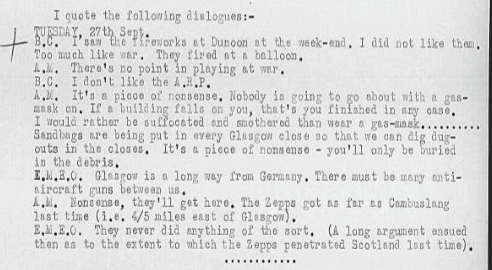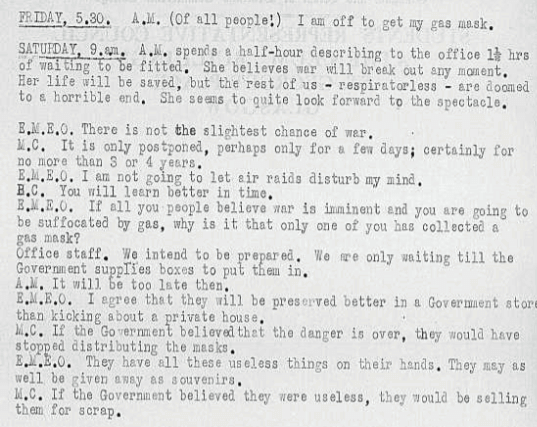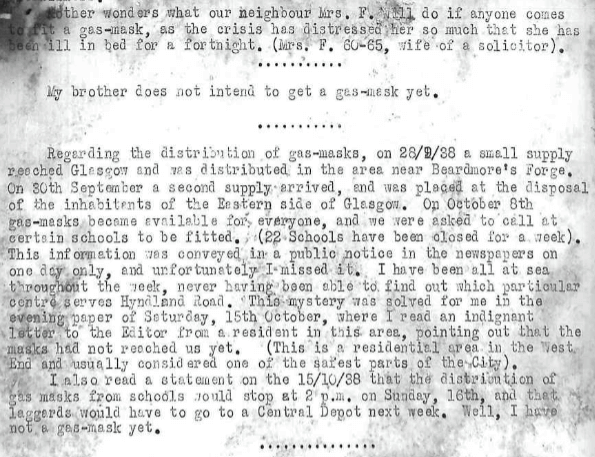Debates on masks in 1938: Thoughts from Mass Observation Online
Masks. Haven’t you heard? They are all the rage this month. From the blue medical coverings you get in the Pharmacy to the fancy four-layered ones my Mother has been making (and everyone’s Auntie/Grandma/Neighbour), they have become as much a fashion statement as a necessary, life-saving item.
On Instagram, feeds are full of celebrities making the supermarket shop look like a runway with masks created from cute patterned material. On the other hand, there has been considerable debate on the effectiveness of masks from sceptical corners of the world.
Also, there are those that accept they must wear a mask despite it irritating them, especially bearded folk. But looking to our past, more specifically in our Mass Observation Online project, I came to the realisation that we as a society have been here before.

Image © Mass Observation Archive. The University of Sussex Special Collections. Further reproduction is prohibited without permission.
The extract above is written by an anonymous Foreign Correspondent from Glasgow in 1938, a year prior to WW2, when gas masks were a necessary item. In recollecting a conversation about gas masks with acquaintances, they note that ‘A.M.’ proclaims “It’s a piece of nonsense. Nobody is going to go about with a gas mask on.”
However, a couple of pages later into the account, A.M. changes their mind and announces to the group that they are off to go and get their gas mask, describing the encounter of having it fitted to the same acquaintances the next day. The account is littered full of observations on gas masks across the space of a month, from what an ill and bedridden neighbour would do from the distress of having to have one fitted, to the writer’s brother announcing they don’t intend to get one.

Image © Mass Observation Archive. The University of Sussex Special Collections. Further reproduction is prohibited without permission.

Image © Mass Observation Archive. The University of Sussex Special Collections. Further reproduction is prohibited without permission.
This account to me sounds similar to thoughts people have today. From those adamant that they won’t wear a mask despite the rules recently put in place, to those who find it stressful going out at all and having to wear one. I find a strange level of comfort, however, that we are not the first generation to have faced an uncertain future, one that we were not sure how it was going to end.
In the midst of the invisible coronavirus, previous generations have to face the restrictions on their freedoms and the need to put public health and safety first. For sure, the challenges faced from 1938 to 2020 may not have been identical (they could still leave the house, but they did not have internet access or Netflix to entertain). But for all the uncertainty we have faced over the course of the last five months, our Foreign Correspondent’s generation too was scared of a future where the end was not immediately in sight.
About the collection
Mass Observation Online is out now.
Recent posts

Discover how the Mass Observation Project evolved through the 2010s. Explore societal trends, from climate change to digital shifts, revealed through module IV. Read how researchers and the public document everyday life in a changing world.

This blog spotlights Foreign Office, Consulate and Legation Files, China: Section II's material which documents China's relations with Britain, and key events such as the beginning of the Xinhai Revolution that ended centuries of imperial rule. It features correspondence between London and British diplomats stationed in Weihaiwei, the first foreign concession in China.
